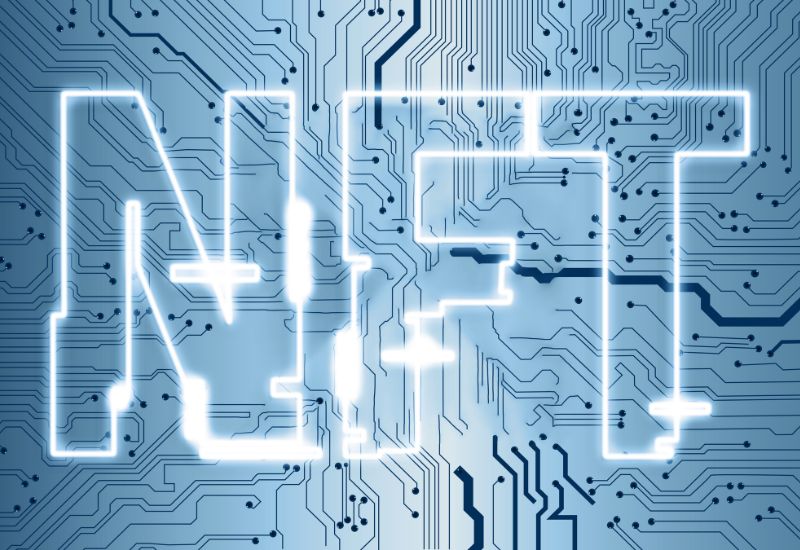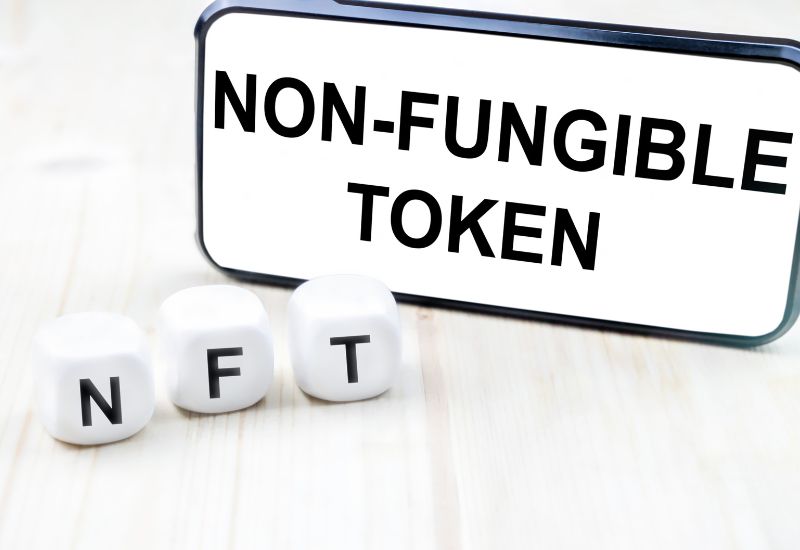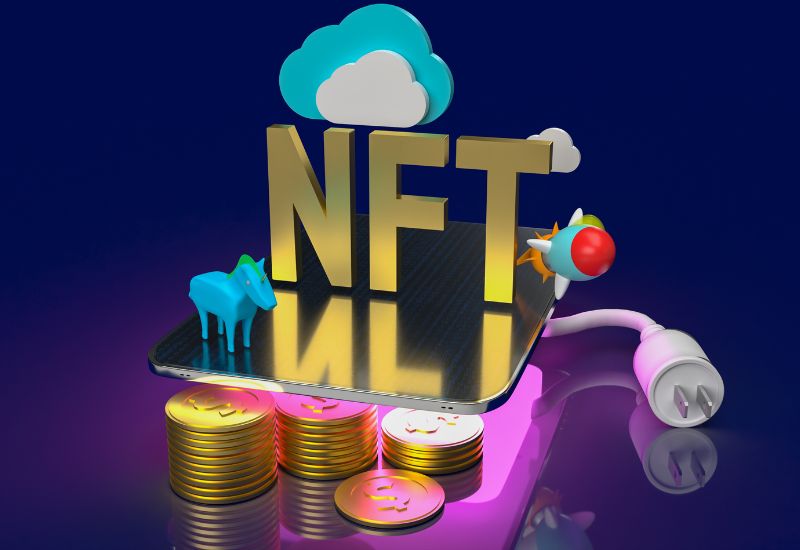Good day everyone! Ready to explore the exciting world of Non-Fungible Tokens (NFTs)? Then buckle up, because you are in for a wild ride! NFTs have disrupted the entire digital asset market, providing buyers, sellers and traders alike with new opportunities to purchase, sell and trade unique digital tokens.
But before we dive in, let’s start with the basics: What exactly are NFTs? In its simplest terms, an NFT is a type of digital asset or certificate of ownership embodying a unit of the item being represented. From rare assets such as digital artwork to tangible assets like physical collectibles, NFTs come in many forms and are easily transferable among buyers, sellers, and traders.
Now, let’s take a closer look at the NFT marketplace — the epicenter of NFTs, where buyers, sellers and traders come together to purchase, sell and trade NFTs. Here, you’ll find myriad options and a plethora of platforms available to help you navigate the digital asset landscape. From decentralized exchanges and marketplaces, to online marketplaces, forums, and communities, the NFT universe is vast and ever-expanding.
So jump right in! There’s never been a better time to dip your toes in the NFT space and start discovering the potential of this revolutionary asset class.
Overview of NFT Marketplace
The NFT Marketplace is an online space for people to buy, sell, and trade Non-Fungible Tokens (NFTs). It has become increasingly popular in recent years due to the digitalization of asset ownership and increased access to blockchain technology. On the NFT Marketplace, buyers can find a wide variety of unique digital assets. These assets can include anything from virtual collectibles, digital artworks, and domain names, to song rights or in-game items. In some cases, these assets may even be rare tokens that could appreciate significantly in value over time.
For those looking to make a purchase on an NFT marketplace, it is important to understand how these marketplaces work and the potential risks associated with such platforms. A number of different platforms exist, each offering its own set of features and benefits. By researching various platforms before investing or making a purchase, buyers can ensure they are comfortable with the platform’s policies and security measures. Additionally, buyers should familiarize themselves with any fees or commissions associated with using the platform.

Overall, the NFT Marketplace provides a unique and often lucrative opportunity for buyers who are willing to take on risks and stay informed about their purchases. As the world’s economy slowly transitions away from physical goods towards digital assets, NFTs will continue to open up lucrative opportunities for those eager to explore this cutting-edge technology. With that said, it is important for potential buyers to research thoroughly before committing to a purchase and ensure they understand exactly what they’re buying. By understanding what lies ahead in the NFT marketplace, buyers can make wise purchasing decisions that will bring them success in the long-term. Now let’s take a closer look at what NFTs are and how they differ from other forms of digital assets.
What are Non-Fungible Tokens (NFTs)?
Non-Fungible Tokens (NFTs) are unique digital assets that are stored on blockchain technology, representing both physical and digital items such as art, sports collectibles, music, movies, and real estate titles. They are secured on a distributed ledger which works as immutable records for ownership, authentication and other properties associated with the token. Unlike other cryptocurrencies such as Bitcoin or Ethereum, NFTs cannot be exchanged for different tokens of the same value due to its uniqueness.
NFTs have attracted considerable attention in recent years due to their versatility and growth in marketplaces that target different sectors. Supporters of these tokens believe that they provide an easy way to create secure digital certificates of ownership and represent an innovative platform to trade digital assets. Critics claim that these features may increase consumer confusion regarding the concept of virtual ownership right and introduce further volatility into the digital asset space.
In any case, many benefits come with applying blockchain technology to digital assets, helping to guarantee ownership rights while creating a transparent transfer process in which decisions are made by consensus rather than private decision makers. It is important to consider all aspects when exploring the NFT marketplace; from investing opportunity to content authentication and scarcity. With that being said, let us explore how the NFT marketplace can enable users to make use of these technologies for advantages ranging from trading ease to potential returns on investment.
See also: Understanding the Power of NFTs in the Marketplace: A Comprehensive Guide
Benefits of NFT Marketplace
The NFT marketplace has provided numerous benefits to collectors and investors alike. Non-fungible tokens represent a new asset class that offers both opportunities for diversification and potential value appreciation over time. This is especially attractive to those with an interest in digital art, collectibles and gaming, as these tokens may become increasingly valuable with growing demand. Furthermore, being able to quickly and easily buy, sell, and trade tokens eliminates the need for traditional ownership obstacles like complex proof of claims, third-party brokers and software systems.
Furthermore, some believe that NFTs could potentially disrupt the entire art market industry due to the increased accessibility of artwork from around the world. By untethering artwork from their physical form and streamlining the purchasing process, NFT’s could provide a new platform for emerging artists all over the world to gain recognition, access a global audience of potential buyers, and have their work featured in prestigious virtual galleries. Early adopters have already seen success with this process, further driving interest in this unique form of asset trading.
Finally, NFTs bring greater transparency, price stability and security to digital asset markets compared to other mechanisms currently available. With blockchain technology underlying each token transaction with its immutable ledger of data points stored across thousands of computers globally, users can place greater trust that their transactions will be secure.
NFTs offer clear benefits in terms of ownership rights as well as eliminating friction associated with existing platforms; however there are still many questions surrounding how these markets will evolve in coming years. As such, it’s important to be cognizant of compliance requirements when using an exchange platform or brokering deals. The ability for users to understand and manage the various risks associated with new technologies is key for determining the long term viability of a particular market structure or product offering moving forward. To learn more about protecting yourself when engaging in online exchanges, improved security measures can be found in the next section.
Improved Security and Transparency
With all the hype around non-fungible tokens (NFTs) it’s important to understand the security backing these unique digital assets. An NFT marketplace improves both the security and transparency of the buying, selling, and trading process. Since the NFTs are stored on blockchain ledgers, their authenticity is guaranteed and can be traced both by the seller and buyer, increasing trust in the buying and selling process. All transactions regarding an NFT are securely stored on public blockchains, providing both parties with complete visibility into their activity. Each token also has a unique ID that helps prevent fraud and counterfeiting by verifying the origin of each token.
The increased security also comes with improved privacy protections. Since NFTs are stored on secure blockchain ledgers, personal information associated with the assets is kept secure from any unwanted third-party presence. Those who have legal rights over certain digital assets can rest assured that their information will remain confidential and private when trading in a secure marketplace.

Overall, these improved levels of security ensure that only verified and legitimate NFTs are being traded in marketplaces, promoting trust between buyers and sellers while protecting users’ privacy rights. By creating a secure environment for dealings involving digital collectibles, users can trade confidently knowing they are protected against potential scams or fraud attempts. With these added benefits, more individuals are beginning to explore NFT marketplaces and take part in this revolutionary new form of digital asset ownership/trading.
These advantages have enabled users to get involved in the buying, selling, and trading of these digital assets with greater ease.
Key Features of NFT Marketplace
NFT marketplace have a host of key features that make them stand out from traditional places to purchase tokens. For example, security and transparency are key elements of an NFT marketplace, allowing users to trust their purchases are legitimate. Additionally, these marketplaces bring much needed liquidity to the NFT space, allowing potential buyers to find other ambitious traders who might be willing to sell or trade tokens.
It’s also worth noting that many sites offer educational and technical resources for users looking to learn more about the space or identify noteworthy sellers. These features are particularly helpful for those looking to invest in digital artwork or use them as rare collectible items and can provide investors with confidence in their desired investment.
Moreover, one of the most important features of NFT marketplaces is the wide range of economic options available for users as well. Auction-like formats can attract competitive buyers and sellers alike, while open marketplaces offer much more flexibility for quick transactions. Many also feature price “floors” and “caps” in order to prevent buyers from making irrational bids at auction, or overpaying for highly sought after items.
Given all of these advantageous features, it’s no wonder why the marketplace is becoming increasingly popular among buyers, sellers and traders. As we move forward it will be interesting to observe how NFT’s enter mainstream financial markets and continue to bring new forms of creativity and innovation into traditional spaces.
The next step on our journey is learning more about how NFTs work and finding out what is necessary in order to take part in the growing network of digital transactions.
How Does an NFT Marketplace Work?
Now that we’ve discussed the key features of an NFT Marketplace, it is important to examine how the platform works. NFT marketplaces are decentralized platforms that allow buyers and sellers to securely purchase and trade blockchain-based digital assets such as artwork, music, and in-game collectables. There are several steps involved in how an NFT Marketplace operates.
The first step is to create a wallet address and register with the marketplace. This is essentially where users store their non-fungible tokens, allowing them to track, buy and sell their digital assets. Once a user has registered, they can either buy or sell NFTs directly on the marketplace or by placing bids during auctions. One benefit of an NFT Marketplace is that users have access to a much larger pool of digital assets which cannot be found on other platforms.
Another important factor to consider when using an NFT Marketplace is transaction fees and timeframes. When trading NFTs on the platform, users are subject to a variety of fees including administrative transaction fees, network transaction fees, hosting costs, and metered costs for certain services like staking. Additionally, transaction times for trades can take anywhere from 15 to 30 minutes depending on the current conditions of the Ethereum blockchain.
It is important to note that not all transactions end positively; as with any type of financial investment there is no guarantee that you will make a profit or even receive the item you purchased when dealing with cryptocurrency trades. While most transactions on NFT Marketplaces go smoothly, users should be aware that due diligence must still occur when buying or selling NFTs as fraud prevention methods cannot always protect against malicious actors within the system. However, since most reputable marketplaces incorporate KYC measures into their processes, fraudulent activity tends to be rarer than other types of crypto exchanges or trading platforms.
In conclusion, an NFT Marketplace provides users with a safe and secure way to buy, sell, and trade non-fungible tokens online. By registering for an account on such a platform, users have access to a much larger pool of digital assets compared to other platforms as well as a wide range of fee structures which generally tend to be substantially lower than those associated with traditional asset trading sites. Nonetheless, it is still important for users to keep up their security protocols and carry out due diligence before making any investments so they can protect themselves from any potential scams or fraudulent activities while trading on an NFT Marketplace.
See also: Navigating the NFT Marketplace: A Comprehensive List
Answers to Common Questions with Detailed Explanations
What is the benefit of using an NFT Marketplace?
The main benefit of using an NFT Marketplace is that it allows buyers, sellers, and traders to safely and securely exchange digital assets such as digital artwork, music, video, and more. By utilizing an NFT Marketplace, users can quickly and easily create markets for these types of digital assets, eliminating the need to search through online offerings and instead offering a convenient place in which to trade.
In addition to providing convenience, an NFT marketplace also facilitates trust between buyers and sellers. Transactions are secure and backed by the blockchain technology responsible for non-fungible tokens. This allows buyers to rest assured that their purchase is authentic and trustworthy. Furthermore, with each transaction recorded on a public ledger, buyers can rest assured that the seller is legitimate since their identity is traceable.
Overall, an NFT Marketplace offers a safe and secure environment for both buyers and sellers alike. It provides transparency and trust in every transaction ensuring that both parties receive what they’re exchanging for.
What types of assets can be traded on an NFT Marketplace?
An NFT Marketplace is a digital platform for buying, selling and trading non-fungible tokens, which are unique digital assets that cannot be divided or exchanged for equal value. The types of assets that can be traded on an NFT Marketplace are as diverse as the creativity of developers. These may include collectibles like artwork and music, digital gaming items, sports memorabilia, cryptocurrency tokens, virtual land, digital tickets, licenses and certificates, in-game items, and more. Each type of asset has its own set of characteristics that makes it desirable to different investors. For example, artwork pieces may hold intrinsic value due to the artist’s reputation or because the artwork is part of an exclusive series. Cryptocurrencies tokens may have utility value tied to their use in a particular application or service. And virtual goods may gain popularity due to their scarcity in the game or due to the bragging rights that come with owning them.
See also: From Memes to Masterpieces: The Best NFT Marketplace for Creative Content
How do I find an NFT Marketplace?
The best way to find an NFT Marketplace is to search online. There are numerous websites and services dedicated to helping people buy, sell, and trade Non-Fungible Tokens. For example, websites like OpenSea, Rarible, and SuperRare are popular NFT Marketplaces. Additionally, there are social media platforms like Twitter and Reddit that can help you connect with other traders in the community. Lastly, many cryptocurrency exchanges such as Coinbase, Binance, and Kraken also offer NFT trading capabilities. By researching these resources and networks, you should be able to find a reputable NFT Marketplace perfect for your needs.

